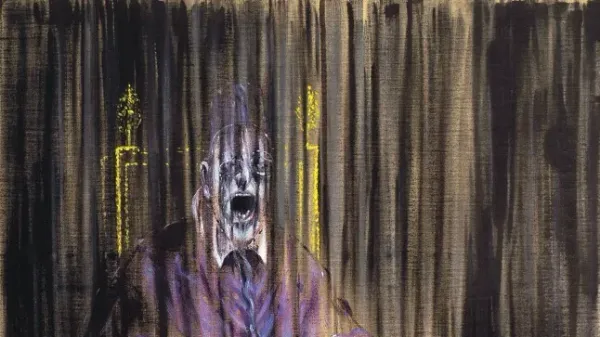Detrans Solidarity, or: Why The Damage Must Be Irreversible
In queer circles, ‘Detransition’ is a dirty word. The reasons we feel such anxiety over this particular topic are fairly understandable: over the last decade, right-wing interests have held up examples (real or imagined) of detransitioners to undermine the very basis of transition care. We are told horror stories of permanently mutilated women and girls now scarred for life, agonized by the changes inflicted upon them by an unfamiliar and unwanted puberty. (The trans people reading this will have to stretch their imaginations to conceive of such a condition.)
Against these attacks, we retreat to statistics. Detransitioners are a vanishingly small minority, an infinitesimal fraction of a population which is in and of itself a tiny subset of humanity as a whole. The regret rate of transgender surgeries is strikingly low even among surgeries as a whole: estimated at 1%, compared to 14.4% for similar elective surgeries among the broader population. Regret is inevitable in any human life: a tattoo, a college major, a relationship. To deny us the opportunity to make choices we regret is to deny us the opportunity to make choices at all. This is, of course, the point, the end-goal behind every evocation of the potential damage that can emerge.
But to discuss detransition and detransitioners in these terms is to do them a disservice. We’ve spent so long fighting the imagined spectre of what detransition looks like and symbolizes that the actual people behind the statistics have been lost. We should reject the imposed idea that transsexuals and detranssexuals are at odds with each other: that the existence of one is necessarily an attack on the other. We are more similar than we think. Our struggles for liberation are intertwined.
Transition and detransition both present a kind of epistemic crisis. We accrete ideas of ourselves: of who we are, of how we exist in relation to the world, of the manners in which we behave, of the social groups within which we belong. To begin to question your gender (either assigned or asserted) is to feel the solid ground beneath you turn itself into quicksand, frantically scrambling for anything against which you can reorient and restabilize yourself. Internal transition is essentially a process of perpetual self-interrogation, as your psyche learns to metabolize the structures it’s been forced into adopting and develop a new self from the wreckage.
These changes entail a process of severing oneself from existing social groups. Few of us maintain friendships we held before coming out. One finds themselves suddenly occupying a very different universe from the people around them, the most essential experiences of their lives newly illegible to those around them. Trans people tend to exist within social circles primarily comprised of other trans people, simply because there’s no need to overcome this barrier of knowledge. Likewise, a detransitioner in one of these circles suddenly finds themselves alienated, bearer of a solitary experience.
Right-wing narratives offer a very convenient framework for people experiencing this kind of crisis in regards to detransition. In times of deep pain and confusion, it’s deeply comforting to be told that your anguish is not your fault, that you’ve been mislead, that you’re the hapless victim of forces outside of your control. It must be extremely tempting to be a detransitioner experiencing these narratives. It offers you grounding, an orientation, a battle to fight, thousands of sympathetic ears willing to amplify your grief to the world. But accepting these stories as your own is tantamount to drinking from a poisoned chalice.
The detransitioner is only valuable to the right inasmuch as they remain irreparably broken. To allow yourself to be embraced by these groups is to essentially foreclose the possibility of fully healing oneself. ‘Celebrity detransitioners’ are perceived by their base not as human beings, but as ambulatory masses of scar tissue, as object lessons. They are living incarnations of the manner in which God and Nature punish deviation from their strictures. Though they vehemently insist upon their desire to return to (usually) womanhood, they crucially must never be allowed to truly do so. The scars can never heal. The Damage must be Irreversible.
But what if it wasn’t?
One of the things I find most intellectually interesting about the experience of detransitioners is that many of the techniques they use to reassert their ASAB are similar to those employed by transsexuals. The beauty of sex hormones is their lack of discrimination: they affect bodies in similar manners, regardless of the sex that body was assigned at birth. A detrans woman will struggle with a naturally low voice as a result of vocal cords lengthened by testosterone; a trans woman affected by natal puberty will struggle in much the same way. Vocal techniques developed by and for transfemmes are just as effective when practiced by someone assigned female at birth.
This overlap is more than coincidence. It marks a fundamental similarity between the experiences of both, a homologous relationship to sex and the world. The existence of detransitioners is proof that one does not have to be trans to transition.
This is why the right must isolate the two groups at any cost. Patriarchy is fundamentally built on an understanding of sex that is not only essential and hierarchical but also immutable. If the detransitioner was fully considered: if one could step outside one’s assigned gender but also return, then the fundamental thesis of the system would be critically weakened. The only way of maintaining the integrity of the system is presenting the bodies of detransitioners as innately damaged and inferior, of denying them the right to claim their ASAB. The conservative fixation on uteruses and breasts is revealing inasmuch as it reveals a core unstated principle of the sex system: that Womanhood as it exists is fundamentally defined by reproductive coercion. Women who lack the capacity to engage in the heterosexual contract are nothing more than damaged Faggots. And who would want to be a Faggot?
The detransitioner and transsexual are allies in that we both hold as our enemy the sex-caste system inherent to patriarchy. The world we look towards is one where the principle of bodily autonomy is absolute, where each and every individual is granted the freedom to alter their own physical characteristics in whatever manner and for whatever reason we choose. We should not allow their experiences to be weaponized against our own: rather, we should welcome them as another example of the potential for life outside of the strict hierarchies imposed upon us by the forces of reaction. There is no peace and no freedom in narratives of damage, of shame, of immutable regret and self-loathing. To be a living thing is to be constantly in a state of change: let us celebrate that change in all its forms.


